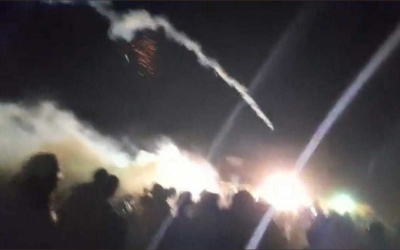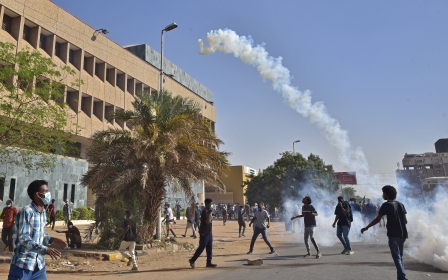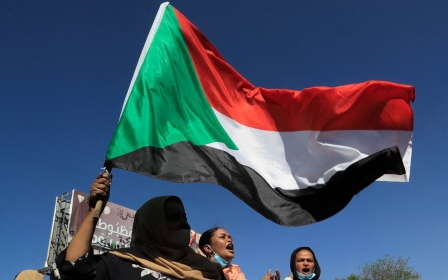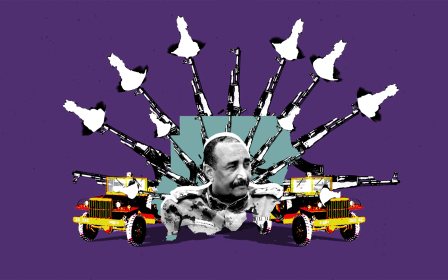'A major setback': Sudan's Hamdok fears for country's future amid mass protests
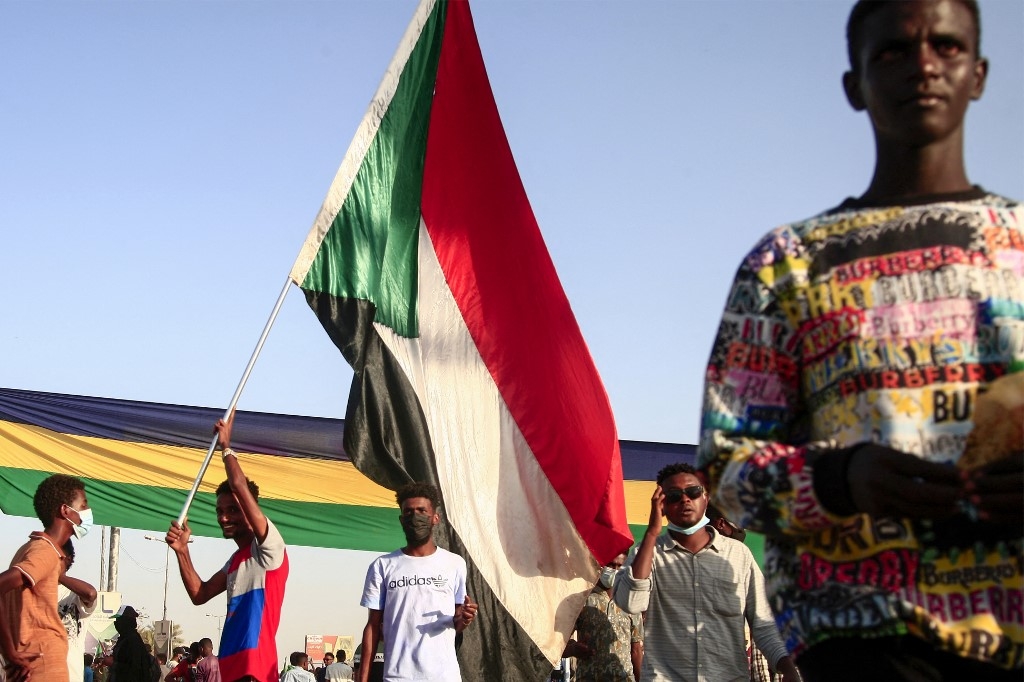
Prime Minister Abdalla Hamdok has expressed concern for Sudan's stability and unity amid mass anti-government protests in Khartoum.
Hamdok, speaking on Saturday, called for a political agreement to safeguard the country's future as protests across the country continue in the weeks after the 25 October military coup.
New MEE newsletter: Jerusalem Dispatch
Sign up to get the latest insights and analysis on Israel-Palestine, alongside Turkey Unpacked and other MEE newsletters
"We face today a major setback to the path of our revolution that threatens the country’s security, unity, and stability, which alerts us to the beginning of a backslide into a pit that leaves us neither a nation nor a revolution," Hamdok said.
Demonstrators initially took to the streets following October's coup. While an agreement to reinstate Hamdok, who had been under house arrest, was announced on 21 November, the agreement has failed to quell civil unrest.
The deal, which included the release of political detainees and the formation of an independent cabinet of technocrats, has faced challenges: particularly on the creation of transitional institutions, the position of the army, and even the formation of a new sovereign council.
Upcoming protests
A planned protest on Sunday is set to mark the third anniversary of demonstrations that started a popular uprising that led to the overthrow of long-ruling autocrat Omar al-Bashir.
The 25 October coup ended a partnership between military leaders and civilian political parties following Bashir’s removal. Those parties, and neighbourhood resistance committees that have organised several mass protests, have rejected dialogue and partnership with the military.
'I want on this occasion to renew my invitation to all revolutionary forces'
- Sudanese Prime Minister Abdalla Hamdok
The agreement reinstating Hamdok faces opposition from protesters who previously saw him as a symbol of resistance to military rule and denounced it as a betrayal.
Hamdok acknowledged the failure of previous mediation attempts but called for a new political agreement.
"Unfortunately all these attempts have stumbled because of the insistence on the differing stances and views of the different forces," he said.
"I want on this occasion to renew my invitation to all revolutionary forces and all those who believe in a civilian democratic transition to agree to a political covenant that addresses the deficits of the past and achieves the remainder of the revolution’s goals."
Tear gas was fired at thousands of supporters of Sudan's opposition Forces for Freedom and Change movement who gathered in the capital Khartoum on Friday, witnesses said. The source of the tear gas was unclear.
Footage posted online showed the gas being thrown into the crowd with plumes of gas choking protesters, including former ministers from Sudan's ousted transitional government.
Middle East Eye delivers independent and unrivalled coverage and analysis of the Middle East, North Africa and beyond. To learn more about republishing this content and the associated fees, please fill out this form. More about MEE can be found here.


